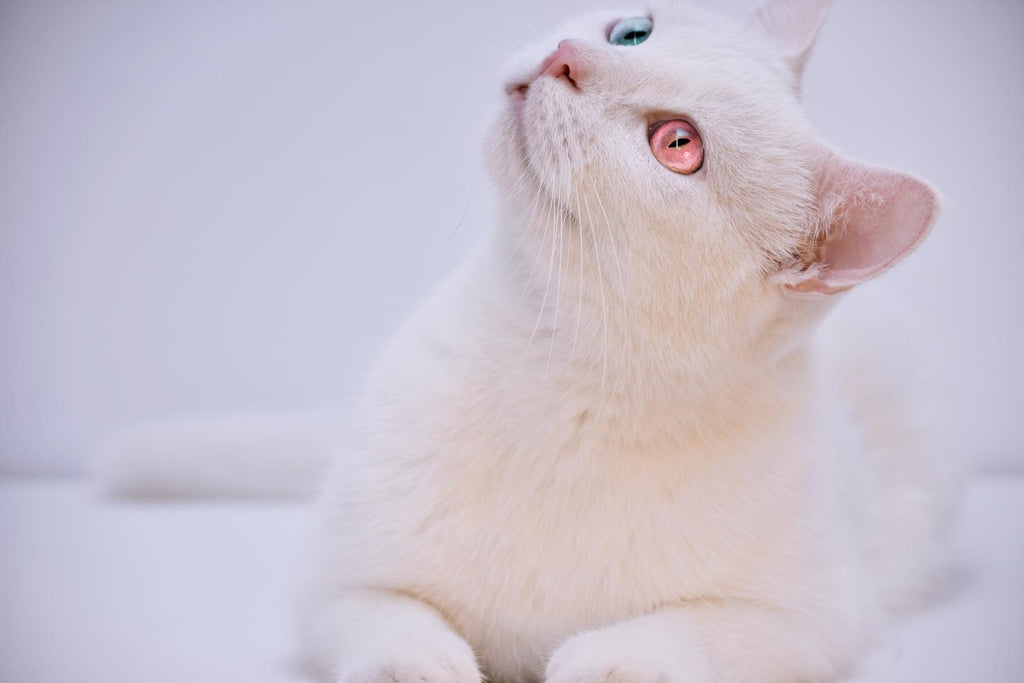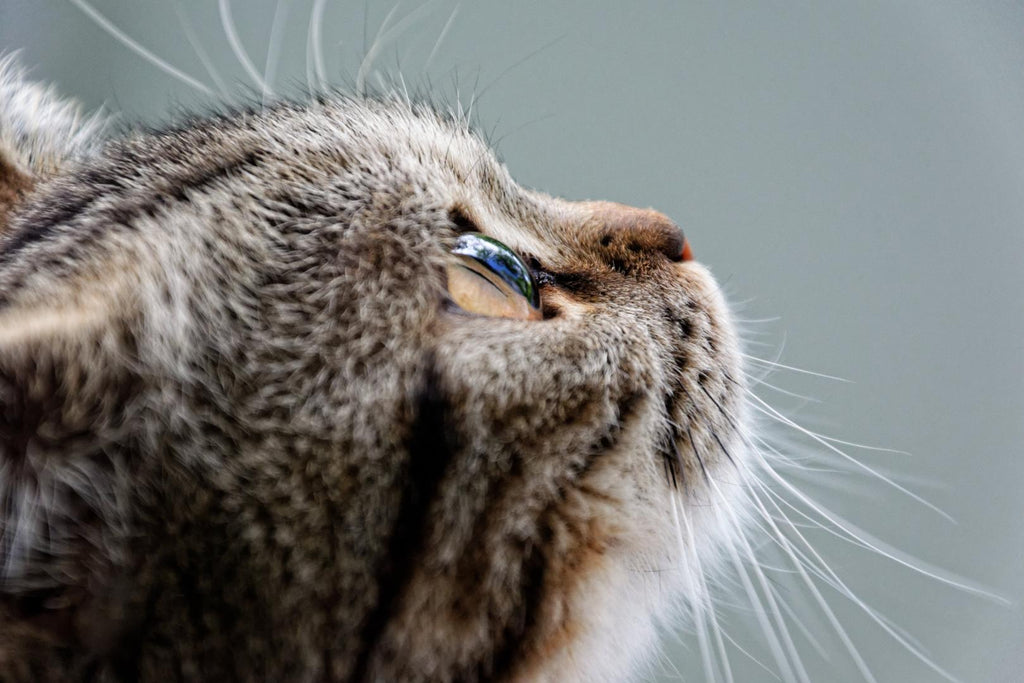What is Pancreatic Cancer in Cats? How Can it Be Treated?
Pancreatic cancer in cats is one of the most serious health problems that your feline best friend could be afflicted with during his lifetime. But what's alarming about this disease is that it can get in the picture without a warning.
If you're anything like most kitty parents, you are likely looking to give your pet the best quality of life—even during the midst of a health crisis like cat pancreatic cancer. This is the biggest reason why we've put together this blog post.
Besides getting you in on the important things to know about tumors and cancer affecting the pancreatic tissue, we're also going to walk you through the symptoms, potential causes, and risk factors, as well as the possible treatment options that you can go for.
And we're even going to reveal our favorite natural and non-invasive support product that you can use for pancreatic cancer in felines. Make sure you read on to learn more.
We'd just like to emphasize, though, that it is crucial that you have your cat checked by a veterinary oncologist and have him subjected to diagnostic tests when you suspect that his pancreas may be affected by cancer or a tumor.
(If you'd like to discover more, please refer to our complete guide to cat cancer to learn more about the various cancers affecting cats.)
What is Pancreatic Cancer In Cats?

There are four main types of pancreatic tumors in cats that may eventually progress into cancer: adenocarcinomas, insulinomas, gastrinomas, and glucagonomas.
These tumors each affect different types of cells within the pancreas—like in the case of the exocrine pancreas—and they are all potentially malignant, meaning they are highly likely to be cancerous in most cats.
While cat pancreatic cancer is serious, the good news is that it is a rare form of cancer among felines. The most common types that affect a cat's body are pancreatic adenocarcinomas and insulinomas.
But here's the thing.
Despite being deemed as "rare cases," having a practical plan when either pancreatic adenocarcinoma or insulinoma pops up is a smart move to include in your pet care checklist. This is because cancer in cats is extremely unpredictable and may just emerge without a warning.
Just to clarify, a pancreatic pseudocyst can neither be classified as a tumor nor cancer. It is a collection of fluid that usually forms during a case of pancreatitis.
Is Pancreatic Cancer Similar to Pancreatic Tumors?

No, cat tumors affecting the pancreas (such as pancreatic adenomas) are separate and distinct from cancer.
They may have some similar effects like disrupting digestive enzymes and causing abdominal pain, but these two shouldn't be considered the same based on the assumption that both stem from the pancreas.
The lowdown on cat tumors
Tumors are generally abnormal tissue masses or growths, which can be either benign or malignant. "Benign" simply means that it is non-cancerous, while "malignant" is usually the description for a tumor that can progress into cancer.
An example of a tumor is pancreatic adenoma. Malignant tumors are those that can become pancreatic cancer in cats and may even have the potential to spread to other parts of the body like the liver, small intestine, lungs, lymph nodes, as well as bones.
As for a secondary tumor, it is usually created when some cancer cells from a different body part of a cat move to some other place. Surgery may or may not be required depending on the circumstances.
Here's a quick analogy: pancreatic adenomas can be primary or secondary. Moreover, a pancreatic tumor can either originate in the pancreas itself or affect the migration of cancer cells.
Like we emphasized earlier, most tumors don't become feline pancreatic cancer, but there is still a very small chance that they will. This is why it's important to know your next steps if the worst happens.

A quick preview on cat cancer
On the other hand, cat cancers are the spread of abnormal cells in a particular part of the body. In the case of pancreatic cancer, it may have originated from the entire pancreas or might have spread from other organs. Surgery may or may not be required depending on the circumstances.
Just to stress, getting a cat pancreatic cancer diagnosis at the earliest time is crucial for the proper treatment of the same. Late detection can mean little success in the treatment of this serious disease, especially when it's already in its advanced stage. Median survival time could also be significantly affected.
Causes of Feline Pancreatic Adenocarcinoma

Pancreatic cancer doesn’t seem to have an exact cause or risk factor. Its disease process is rather extremely complicated to figure out despite the modern advances in veterinary medicine.
Interestingly, some possible factors might have a connection with this serious health problem.
Genetics and cat cancer affecting the pancreas
There seem to be genetic factors that cause it to occur more often among particular cat breeds. Siamese cats belong to a breed that tends to be diagnosed with pancreatic cancer more than other cat pedigrees.
Age and the Possibility of Tumors and Cancer in Felines
Age is another possible factor to keep an eye on. Middle-aged and older cats are at a higher risk for developing pancreatic cancer.
Additionally, senior cats may also have an underlying disease that can significantly decrease their overall immune system health. This can make them more prone to the proliferation of abnormal cells in their bodies.
Diabetes Mellitus: Risk Factor for Feline Pancreatic Cancer or Not?

Speaking of underlying disease, is diabetes a risk factor you should take note of?
While the answer is not yet conclusive, studies show that cats suffering from exocrine pancreatic insufficiency—which is quite common among those suffering from diabetes—are often the targets of pancreatic cancer in cats.
Diabetes (as well as the presence of excessive insulin in the body of a cat) are often considered key elements when getting a diagnosis for cancer of the pancreas in felines. This can be gleaned by the conduct of blood tests to check for the hormones insulin and glucagon, which are in charge of regulating blood sugar levels.
What are the Symptoms of Pancreatic Cancer in Cats?

Depending on the type of pancreatic tumor in cats, the signs of pancreatic cancer in cats might be different from case to case.
Symptoms of insulinomas in cats
Insulinomas cause the pancreas to produce more insulin, which lowers the blood sugar. Some of the symptoms of this type of tumor include:
-
Lethargy
-
Weakness
-
Vomiting
-
Seizures or sudden collapse
-
Weight loss
-
Hair loss
-
Exocrine pancreatic insufficiency or excessive levels of the same

Symptoms of adenocarcinomas in cats
Adenocarcinomas have symptoms that are harder to identify. Cats with this type of tumor tend to show signs of pancreatitis (inflammation of the pancreas), such as:
-
Loss of appetite and weight loss
-
Vomiting
-
Abdominal pain (requires pain management in some cases)
-
Difficulty breathing
-
Disrupted levels of digestive enzymes
-
Exocrine pancreatic insufficiency or excessive levels of the same
Remember that it isn’t always easy to identify cancer in your pet! The symptoms may vary for this disease, too.
But if you notice anything wrong with your pet, like a change of behavior, book a checkup with a vet or a consultation with a pet wellness expert so you can know for sure.
Determining the Presence of Pancreatic Cancer in Cats

Ascertaining if your pet is suffering from pancreatic cancer cannot be done by just a simple physical examination. Certain technical procedures must be conducted to properly determine that it exists. These are usually performed by a veterinarian.
One of the procedures used is a complete blood count (CBC), which checks the chemistry profile of the organs, hormones, and the amount of digestive enzyme released, among others. This strategy is also used for the determination of other diseases like in checking for exocrine pancreatic insufficiency.
The vet may also perform abdominal radiographs and abdominal ultrasound to come up with a diagnosis. A CT scan is resorted to as well. It is aimed at "taking pictures" of tumors or cancer affecting the pancreas.
Given that there is still no definitive method as regards the diagnosis of pancreatic cancer in cats, the abovementioned procedures may be used simultaneously.
Pancreatic Cancer In Cats: Life Expectancy
Unfortunately, pancreatic tumors in cats generally have a low life expectancy, which can be as little as weeks or months. The majority of these cancers are diagnosed in the late stages when the cancer has already metastasized (spread) to other parts of the body, like the lymph nodes or liver.
Pancreatic Cancer In Cats: Treatment?

The treatment options may vary depending on your cat’s situation. The usual ones resorted to include surgery (even exploratory surgery in some cases), chemotherapy, and radiation therapy.
Moreover, the vet might recommend a combination of surgery and chemotherapy, with other medications to help with the treatment of the symptoms triggered by this disease.
But the problem is, besides being invasive, they can also cause adverse side effects like vomiting and similar issues in the process. No matter the case, it is always a tough decision to choose a treatment plan for your companion (especially invasive surgery)!
Because many pet parents are interested in natural products for pancreatic cancer in cats, we are excited to tell you about PIPTOPET! This product has been specially designed to help boost the immune system in your cat to provide him support a good health during his fight against CANCER and recurrences of cancer.
Whether you choose to use it on its own or with other treatments, you can be sure that you can use it even for long-term use!
I hope you’ve found the information in this article helpful while you go through this hard time. We’d love to hear from you!
Make sure you schedule an online consultation right now to get on top of your pet's health.
We appreciate it when you take the time to share this article with your friends and family on social media, too! It helps spread the message to more people so all pet parents can be better informed about their pet’s health.







Leave a comment